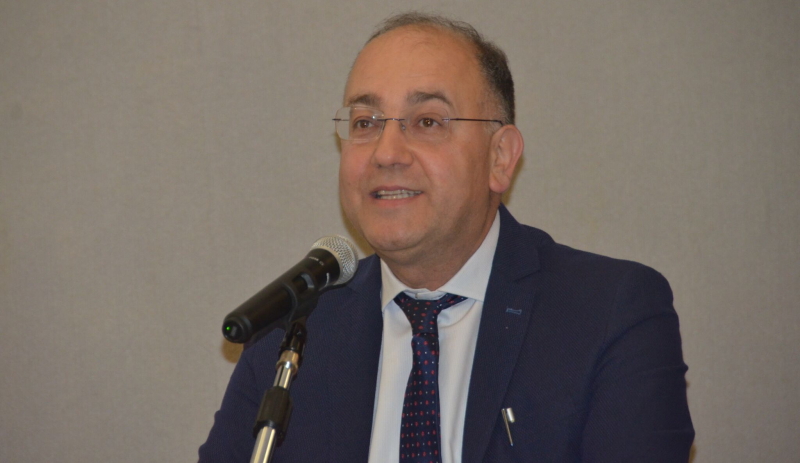

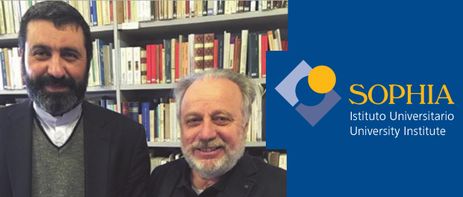
Dr Mohammad Shomali (Iran) on a visit to Sophia University Institute
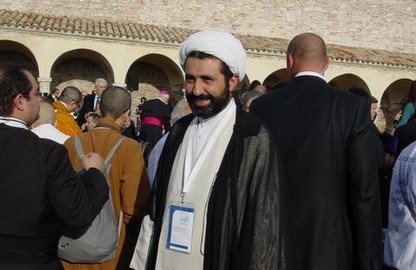 The bi-monthly journal of the British Islamic Cultural Centre published a brief account of the recent visit to the Sophia University Institute by Dr Mohammad Ali Shomali, Director of the International Institute of Islamic Studies in Qum, Iran. Dr Shomali, who currently lives in London and directs the Islamic Centre in Great Britain, is a well-known figure in the Shia world. He is very active in the field of interreligious dialogue, and thanks to him various moments of encounter between Shi’a Muslims and Benedictine Monks have been organised organised, allowing relationships of trust to be established. The visit on 26 April to Sophia is a consequence of the long and fruitful pathway which made the shared experience and academic collaboration possible in Loppiano which has this characteristic. Islam today reported the news of this visit highlighting the importance of this extraordinary growing friendship. Here are some extracts: Sophia University Institute in Loppiano (Florence, Italy) was established in honour of Chiara Lubich (founder of the Focolare Movement) in 2008 after her death. The relationship between the university and the Shi’a Scholars started long before it became a university. Hujjatul-Islam Dr Muhammad Ali Shomali’s first visit took place back in 1999. These meeting represent the foundation of a long friendship and dialogue. Discussions varied from talking about Sophia (Latin meaning Wisdom) to the future of humanity. From the discussion between the university academics and Shi’a scholars it soon became clear that they had many common ideas about unity and inter-religious dialogue that could be developed in practical projects.
The bi-monthly journal of the British Islamic Cultural Centre published a brief account of the recent visit to the Sophia University Institute by Dr Mohammad Ali Shomali, Director of the International Institute of Islamic Studies in Qum, Iran. Dr Shomali, who currently lives in London and directs the Islamic Centre in Great Britain, is a well-known figure in the Shia world. He is very active in the field of interreligious dialogue, and thanks to him various moments of encounter between Shi’a Muslims and Benedictine Monks have been organised organised, allowing relationships of trust to be established. The visit on 26 April to Sophia is a consequence of the long and fruitful pathway which made the shared experience and academic collaboration possible in Loppiano which has this characteristic. Islam today reported the news of this visit highlighting the importance of this extraordinary growing friendship. Here are some extracts: Sophia University Institute in Loppiano (Florence, Italy) was established in honour of Chiara Lubich (founder of the Focolare Movement) in 2008 after her death. The relationship between the university and the Shi’a Scholars started long before it became a university. Hujjatul-Islam Dr Muhammad Ali Shomali’s first visit took place back in 1999. These meeting represent the foundation of a long friendship and dialogue. Discussions varied from talking about Sophia (Latin meaning Wisdom) to the future of humanity. From the discussion between the university academics and Shi’a scholars it soon became clear that they had many common ideas about unity and inter-religious dialogue that could be developed in practical projects. Dr Shomali’s recent visit to the university took place in February 2015, where he held public as well as informal meetings with staff and students. Following that meeting Dr Shomali was invited by the president of the university Professor Msgr. Coda Piero to return to the university and teach a course to MA students which was scheduled to start in 2016. The course which is based on inter-religious dialogue was for the first time to be taught by lecturers from different religious traditions in order to share similar experiences and ideas. Dr Shomali delivered his first lecture during a four-hour morning and afternoon session in April 2016. He talked about his personal involvement in inter-religious dialogue, presenting a brief summary of his twenty-year rich experience in the field of interfaith. A part of his discussion was also about Shia Islam and the foundation for dialogue according to Shia Islam. Dr Shomali further spoke about the importance of inter-religious dialogue and the future of humanity based on unity. Following this academic engagement, the plan is to have a three-day programme in July 2016 (after the month of Ramadhan). The university president Prof. Coda Piero and Dr Shomali will be discussing subjects related to unity between different faith groups, Muslim and Christians in particular and some of the ideas can be put into action in the near future. Hujjatul-Islam Dr Shomali will be taking a group of scholars in the next encounter to present the Muslim Shia perspective while Professor Coda Piero will lead the Catholic/Focolare Movement side. “The April meeting was a fruitful meeting. After many years of friendship and talk, the two groups are now ready to move into more focused, scholarly but at the same time spiritual discussion on unity and cooperation,” said Dr Shomali.
Dr Shomali’s recent visit to the university took place in February 2015, where he held public as well as informal meetings with staff and students. Following that meeting Dr Shomali was invited by the president of the university Professor Msgr. Coda Piero to return to the university and teach a course to MA students which was scheduled to start in 2016. The course which is based on inter-religious dialogue was for the first time to be taught by lecturers from different religious traditions in order to share similar experiences and ideas. Dr Shomali delivered his first lecture during a four-hour morning and afternoon session in April 2016. He talked about his personal involvement in inter-religious dialogue, presenting a brief summary of his twenty-year rich experience in the field of interfaith. A part of his discussion was also about Shia Islam and the foundation for dialogue according to Shia Islam. Dr Shomali further spoke about the importance of inter-religious dialogue and the future of humanity based on unity. Following this academic engagement, the plan is to have a three-day programme in July 2016 (after the month of Ramadhan). The university president Prof. Coda Piero and Dr Shomali will be discussing subjects related to unity between different faith groups, Muslim and Christians in particular and some of the ideas can be put into action in the near future. Hujjatul-Islam Dr Shomali will be taking a group of scholars in the next encounter to present the Muslim Shia perspective while Professor Coda Piero will lead the Catholic/Focolare Movement side. “The April meeting was a fruitful meeting. After many years of friendship and talk, the two groups are now ready to move into more focused, scholarly but at the same time spiritual discussion on unity and cooperation,” said Dr Shomali.
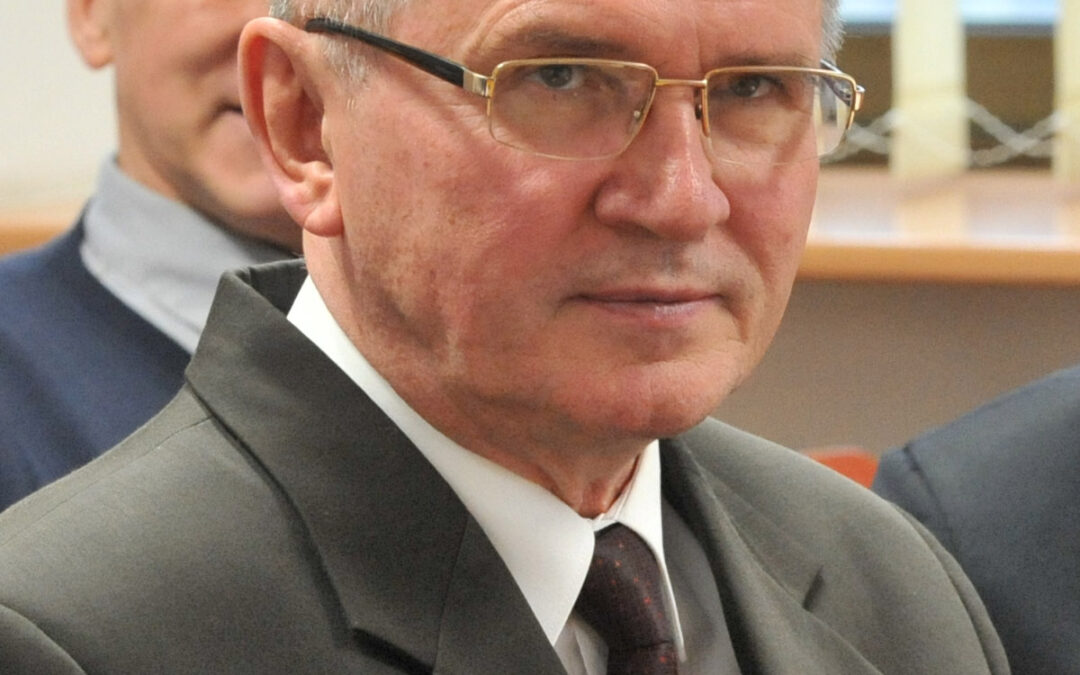
“A Copernican Revolution for the Social Sciences”
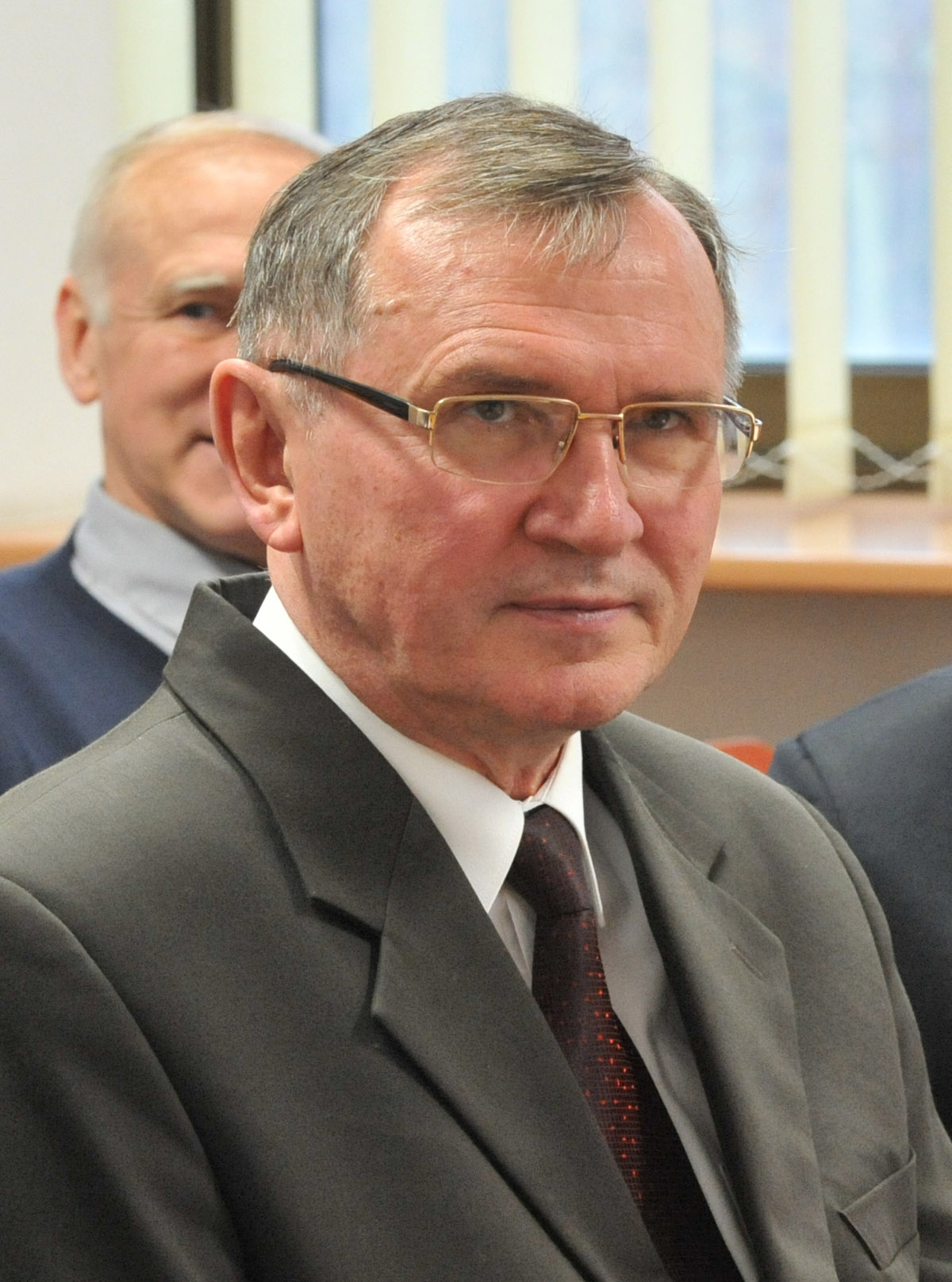 The conferral of the Honorary Doctorate to Focolare foundress, Chiara Lubich (1920-2008) originated with Adam Biela. At that time he was the Chair of the School of Social Sciences at the Catholic University of Lublino. Following that honorary degree 15 others would be conferred to Chiara from around the world and in a variety academic fields. In his conferral speech Professor Biela spoke of a “Copernican Revolution” to introduce the idea of a new approach (paradigm) for the social sciences. We ask Biela what motivated him to promote the doctorate. “In my conferral speech I had explained the main reasons for the conferral of the Honorary Doctorate in Social Sciences to the foundress of the Focolare Movement, Chiara Lubich, by the Catholic University of Lublin in June 1996. An American philosopher of science, Thomas Kun (1962) thought the Copernican Revolution was the best illustration of what took place with the scientific revolution. In its essence [the Copernican approach or paradigm] signified a change of mentality. Copernicus had to change the firmly-established geocentric system that was at work not only in the sciences of his time, but also in the culture, tradition, perception of society, even in the mentality of the religious and political authorities. And he did it in a manner that was careful, empirical, methodological and psychological. In a similar way, through her social activity, Chiara Lubich was the source of a revolutionary inspiration for the creation of an approach (paradigm) in the field of social sciences. In an extremely dangerous situation in Trent, Italy, in 1943 she decided not to escape from the threat to her own life, but to join her friends in helping other people survive who were in far more difficult situations. She decided to face the risk of the bombardments of the War, in order to stay with the children and elderly who were left all alone and in need of assistance. That type of experience made her rediscover the community as a model of life, and it allowed the charism of unity to be materialized and clarified. In any case the devolopment of this charism shows it to be a concrete and practical actualization of a new vision of social, economic, political, educational, religious and relational structures, which guides, suggests, encourages and promotes unity with other people. In my conferral speech I used the idea of a unity approach (paradigm) to stress the social activity of Chiara Lubich and the Focolare Movement for the construction of psycho-social structures for unity in different fields: for example, in the Economy of Communion in the Political Movement for Unity; in Net One and its journalists for unity; in ecumenical and interreligious friendships.” On June 3rd and June 4th an academic conference titled “Conflicts, Dialogue and the Culture of Unity” and dedicated to John Paul II will be held at the University in Lublin. What is the purpose? “In June 1966 the John Paul II Catholic University had truly found a methodological way to express the novelty, uniqueness, heuristic and applicable value of the charism of unity not only in the social sciences, but also in other academic fields. We are truly pleased that our message about the methodological validity of the charism of unity has found an understanding in so many academic centres that they have conferred honorary degrees to Chiara Lubich. The concept of a unity approach (paradigm) is a big inspiration that will lead the social sciences to come up with their own research models with a power and mental and methodological potential that will be able to offer a new social vision of the world. In the meantime, the Conflicts, Dialogue and Culture of Unity Conference will examine the extent to which the praxis of the unity approach (paradigm) that is founded on the spirituality of unity, is able to resolve conceptual problems, as well as applications for the building of social, economic and political integration in today’s Europe and in the world.”
The conferral of the Honorary Doctorate to Focolare foundress, Chiara Lubich (1920-2008) originated with Adam Biela. At that time he was the Chair of the School of Social Sciences at the Catholic University of Lublino. Following that honorary degree 15 others would be conferred to Chiara from around the world and in a variety academic fields. In his conferral speech Professor Biela spoke of a “Copernican Revolution” to introduce the idea of a new approach (paradigm) for the social sciences. We ask Biela what motivated him to promote the doctorate. “In my conferral speech I had explained the main reasons for the conferral of the Honorary Doctorate in Social Sciences to the foundress of the Focolare Movement, Chiara Lubich, by the Catholic University of Lublin in June 1996. An American philosopher of science, Thomas Kun (1962) thought the Copernican Revolution was the best illustration of what took place with the scientific revolution. In its essence [the Copernican approach or paradigm] signified a change of mentality. Copernicus had to change the firmly-established geocentric system that was at work not only in the sciences of his time, but also in the culture, tradition, perception of society, even in the mentality of the religious and political authorities. And he did it in a manner that was careful, empirical, methodological and psychological. In a similar way, through her social activity, Chiara Lubich was the source of a revolutionary inspiration for the creation of an approach (paradigm) in the field of social sciences. In an extremely dangerous situation in Trent, Italy, in 1943 she decided not to escape from the threat to her own life, but to join her friends in helping other people survive who were in far more difficult situations. She decided to face the risk of the bombardments of the War, in order to stay with the children and elderly who were left all alone and in need of assistance. That type of experience made her rediscover the community as a model of life, and it allowed the charism of unity to be materialized and clarified. In any case the devolopment of this charism shows it to be a concrete and practical actualization of a new vision of social, economic, political, educational, religious and relational structures, which guides, suggests, encourages and promotes unity with other people. In my conferral speech I used the idea of a unity approach (paradigm) to stress the social activity of Chiara Lubich and the Focolare Movement for the construction of psycho-social structures for unity in different fields: for example, in the Economy of Communion in the Political Movement for Unity; in Net One and its journalists for unity; in ecumenical and interreligious friendships.” On June 3rd and June 4th an academic conference titled “Conflicts, Dialogue and the Culture of Unity” and dedicated to John Paul II will be held at the University in Lublin. What is the purpose? “In June 1966 the John Paul II Catholic University had truly found a methodological way to express the novelty, uniqueness, heuristic and applicable value of the charism of unity not only in the social sciences, but also in other academic fields. We are truly pleased that our message about the methodological validity of the charism of unity has found an understanding in so many academic centres that they have conferred honorary degrees to Chiara Lubich. The concept of a unity approach (paradigm) is a big inspiration that will lead the social sciences to come up with their own research models with a power and mental and methodological potential that will be able to offer a new social vision of the world. In the meantime, the Conflicts, Dialogue and Culture of Unity Conference will examine the extent to which the praxis of the unity approach (paradigm) that is founded on the spirituality of unity, is able to resolve conceptual problems, as well as applications for the building of social, economic and political integration in today’s Europe and in the world.”
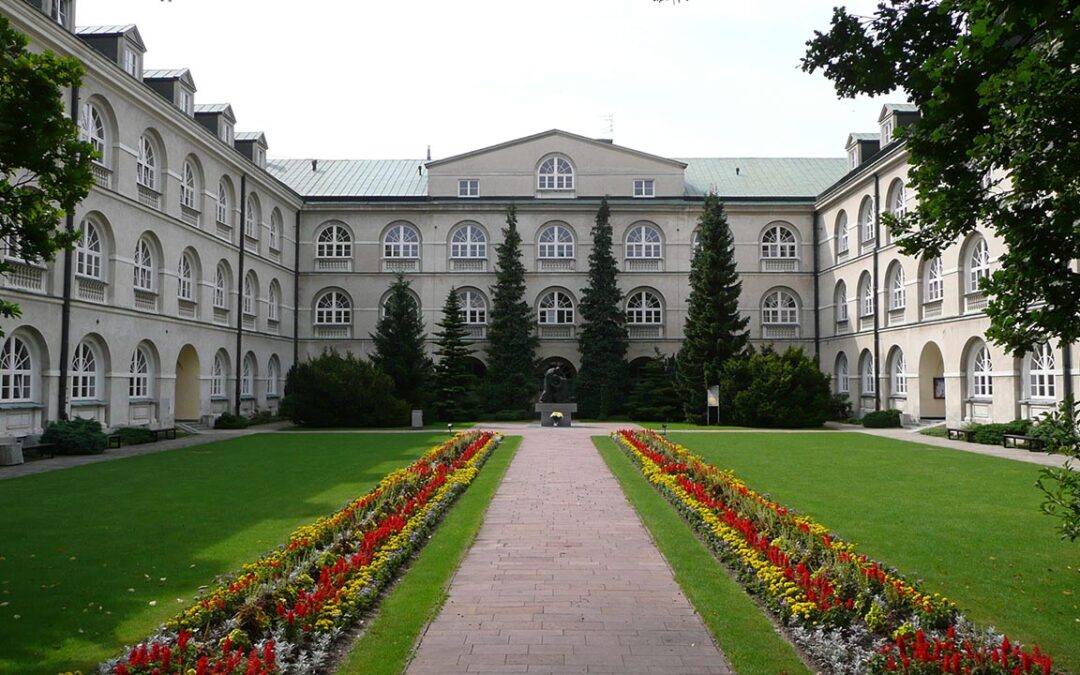
Conflict, dialogue and the culture of unity
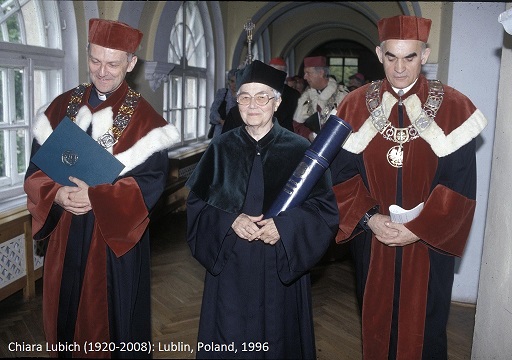 “Through the work of the Focolare Movement, Chiara Lubich created a new social inclusion phenomenon inspired by the evangelical charism of unity, revealing new psychological, social, economic and religious- spiritual dimensions”. Prof. Adam Biela said these words during the official ceremony held in June 1996 when Chiara Lubich was awarded an honorary doctoral degree in Social Sciences by the John Paul II Catholic University in Lublin. He also explained that such a message “does not only prove that a new paradigm in social sciences is possible, but also shows how necessary it is to implement it”. While speaking about its inspirational role in social sciences, he defined it as a “paradigm of unity” and compared to “the Copernican revolution in natural sciences”. Fifteen other honorary degrees, from various universities in different parts of the world, were awarded to Lubich after this first one. Twenty years passed and the John Paul II Catholic University of Lublin would like to take stock of the situation, so a conference is being organised in collaboration with the Focolare Movement’s Centre for Dialogue with Culture and the Sophia University Institute. This conference will reflect and research on “Conflict, dialogue and the culture of unity” through the perspectives of pyschology, economy, education, political science, sociology and communication. Prof. Biela declares that this conference “will analyse the contribution that the research and practice inspired by the paradigm of unity, based on the spirituality of unity, can offer to the conceptual and applied issues concerning the building of social, economic and political integration in today’s Europe and in the world”. He also claims that particular attention will be given to “Chiara Lubich’s social activity and that of the Focolare Movement to build psychosocial structures for unity in various social spheres”.
“Through the work of the Focolare Movement, Chiara Lubich created a new social inclusion phenomenon inspired by the evangelical charism of unity, revealing new psychological, social, economic and religious- spiritual dimensions”. Prof. Adam Biela said these words during the official ceremony held in June 1996 when Chiara Lubich was awarded an honorary doctoral degree in Social Sciences by the John Paul II Catholic University in Lublin. He also explained that such a message “does not only prove that a new paradigm in social sciences is possible, but also shows how necessary it is to implement it”. While speaking about its inspirational role in social sciences, he defined it as a “paradigm of unity” and compared to “the Copernican revolution in natural sciences”. Fifteen other honorary degrees, from various universities in different parts of the world, were awarded to Lubich after this first one. Twenty years passed and the John Paul II Catholic University of Lublin would like to take stock of the situation, so a conference is being organised in collaboration with the Focolare Movement’s Centre for Dialogue with Culture and the Sophia University Institute. This conference will reflect and research on “Conflict, dialogue and the culture of unity” through the perspectives of pyschology, economy, education, political science, sociology and communication. Prof. Biela declares that this conference “will analyse the contribution that the research and practice inspired by the paradigm of unity, based on the spirituality of unity, can offer to the conceptual and applied issues concerning the building of social, economic and political integration in today’s Europe and in the world”. He also claims that particular attention will be given to “Chiara Lubich’s social activity and that of the Focolare Movement to build psychosocial structures for unity in various social spheres”. 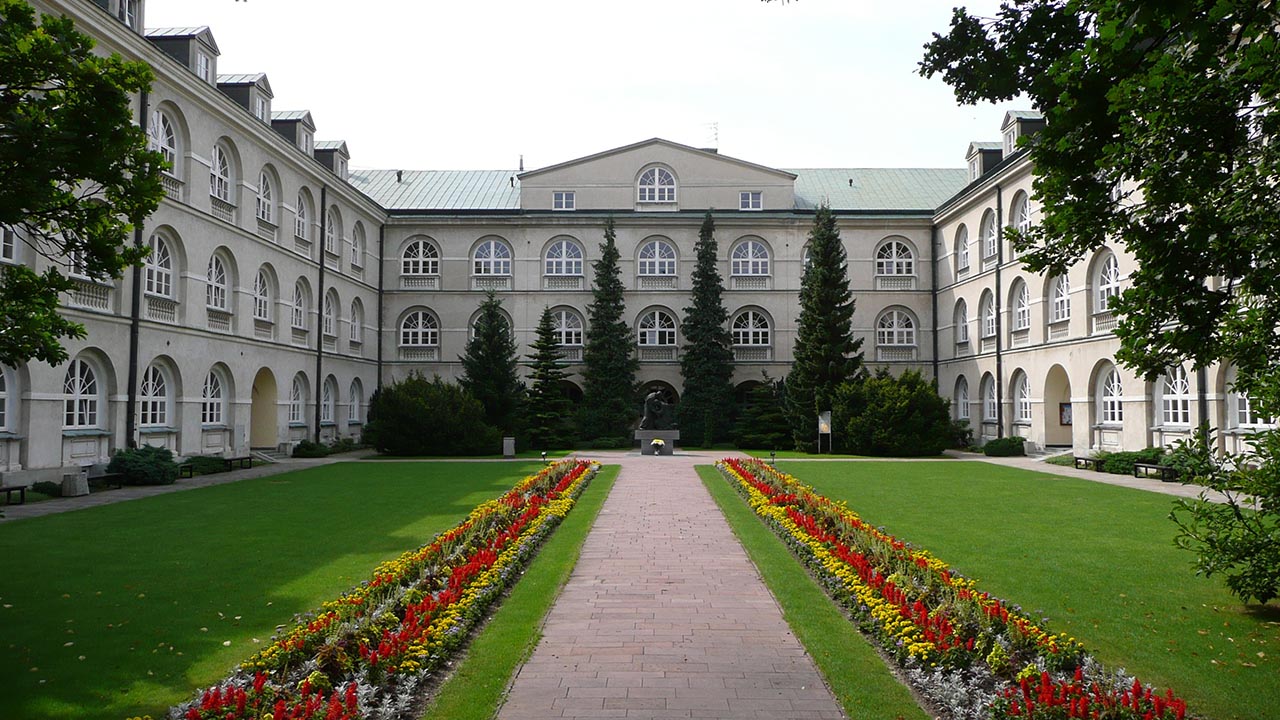 More than 90 researchers and scholars from different parts of the world answered a call for papers and sent in their abstracts on the five themes to be discussed during the conference: dialogue in the communities: charism and institution; solving conflicts through dialogue; accomplishing political change and participatory processes; individual, interpersonal and intergroup processes in managing and preventing conflicts; interdisciplinary dialogue. Prof. Adam Biela and Jesús Morán, co-president of the Focolare Movement, who will give the opening talk, will be joined by other main speakers, namely the professors Bernhard Callebaut (Sophia University Institute in Loppiano, Italy) Mauro Magatti (Catholic University of Milan, Italy), Bogusław Śliwerski (University of Lodz, Poland), Marek Rembierz (University of Silesia, Poland), Stefano Zamagni, (University of Bologna, Italy), Krzysztof Wielecki (Wyszynski University of Warsaw, Poland), Catherine Belzung (University of Tours, France), John Raven (University of Manchester, United Kingdom). The conference starts on the feast of the Sacred Heart of Jesus, patron of the University. The University celebrates this feast with an official ceremony which will precede the conference. The Rector Prof. Antoni Dębiński will preside over this ceremony, while Archbishop Celestino Migliore, the Apostolic Nuncio and other civil and religious personalities are expected to participate. Info: http://psychointerwencja.wix.com/congress Source: Press Release SIF – Focolare Information Service
More than 90 researchers and scholars from different parts of the world answered a call for papers and sent in their abstracts on the five themes to be discussed during the conference: dialogue in the communities: charism and institution; solving conflicts through dialogue; accomplishing political change and participatory processes; individual, interpersonal and intergroup processes in managing and preventing conflicts; interdisciplinary dialogue. Prof. Adam Biela and Jesús Morán, co-president of the Focolare Movement, who will give the opening talk, will be joined by other main speakers, namely the professors Bernhard Callebaut (Sophia University Institute in Loppiano, Italy) Mauro Magatti (Catholic University of Milan, Italy), Bogusław Śliwerski (University of Lodz, Poland), Marek Rembierz (University of Silesia, Poland), Stefano Zamagni, (University of Bologna, Italy), Krzysztof Wielecki (Wyszynski University of Warsaw, Poland), Catherine Belzung (University of Tours, France), John Raven (University of Manchester, United Kingdom). The conference starts on the feast of the Sacred Heart of Jesus, patron of the University. The University celebrates this feast with an official ceremony which will precede the conference. The Rector Prof. Antoni Dębiński will preside over this ceremony, while Archbishop Celestino Migliore, the Apostolic Nuncio and other civil and religious personalities are expected to participate. Info: http://psychointerwencja.wix.com/congress Source: Press Release SIF – Focolare Information Service
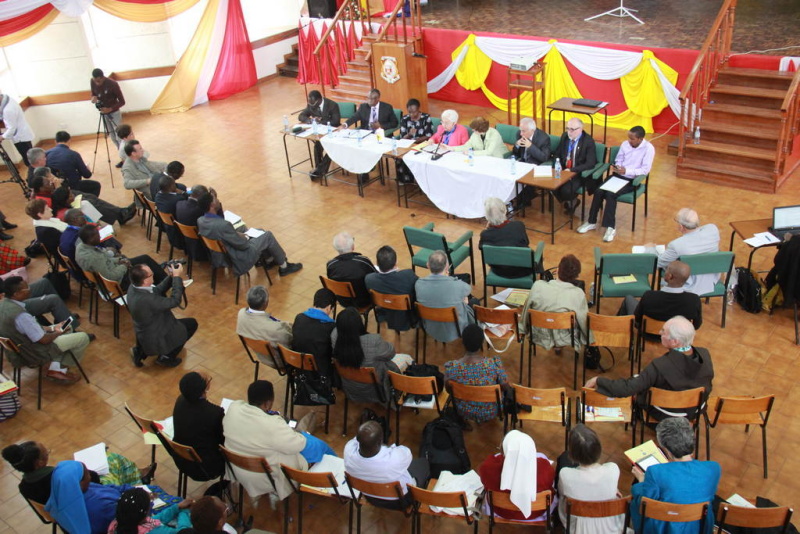
Kenya: Ecumenism and Reconciliation
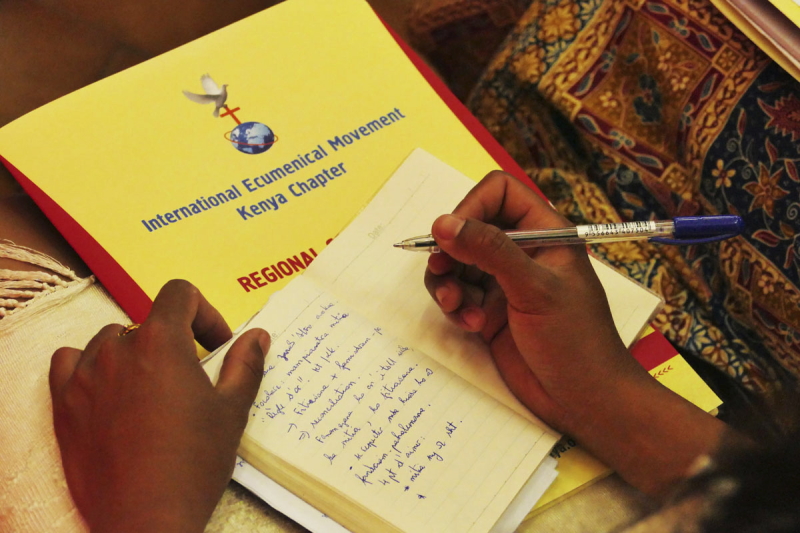 Dialogue between members of two ethnic groups in permanent conflict is what Johnson Duba, a young man from Marsabit, in northern Kenya, works hard for. He often succeeded in persuading the village elders to come together in a spirit of dialogue in order to restore peace in the community. When it came to young people, however, his attempts to unite them came about through sport. He initiated a football tournament, where nobody actually wins, in order to strengthen peaceful cohabitation. It is one of the fruits of reconciliation brought about by living the charism of unity which Johnson has always tried to live in his village. His was one of the experiences presented on May 27th to the delegates of various Churches from Eastern Africa and from Europe gathered for the International Ecumenical Movement Kenyan Chapter (IEM-K). Among the guest-speakers were Rev. Dr Samuel Kobia, former General Secretary of the World Council of Churches, and former president of IEM-K, as well as Maria Voce, President of Focolare Movement who was visiting Kenya from 14 May to 1 June.
Dialogue between members of two ethnic groups in permanent conflict is what Johnson Duba, a young man from Marsabit, in northern Kenya, works hard for. He often succeeded in persuading the village elders to come together in a spirit of dialogue in order to restore peace in the community. When it came to young people, however, his attempts to unite them came about through sport. He initiated a football tournament, where nobody actually wins, in order to strengthen peaceful cohabitation. It is one of the fruits of reconciliation brought about by living the charism of unity which Johnson has always tried to live in his village. His was one of the experiences presented on May 27th to the delegates of various Churches from Eastern Africa and from Europe gathered for the International Ecumenical Movement Kenyan Chapter (IEM-K). Among the guest-speakers were Rev. Dr Samuel Kobia, former General Secretary of the World Council of Churches, and former president of IEM-K, as well as Maria Voce, President of Focolare Movement who was visiting Kenya from 14 May to 1 June. 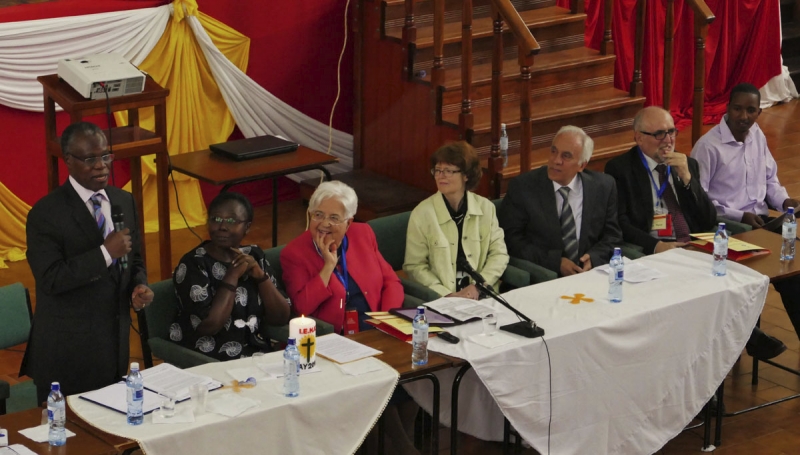 “The Focolare Movement is ecumenical by nature,” stated Rev. Dr Kobia, emphasizing his good relationship with Chiara Lubich, whom he met in person, and with the Focolare community. In his talk he stressed the importance of forgiveness saying, “We do not want to be imprisoned by the past because you can easily remain a captive of history (…) but we should deal with the past in a way that we will not pass bitterness and anger to the next generation.” He urged the Ecumenical Movement to support projects of peace, dialogue and reconciliation promoted by their governments. Moreover, in the heart of Chiara Lubich was a burning desire “to respond to the most urgent and dramatic needs of humanity, the need for peace,” recalled Maria Voce in the preliminary part of her speech. “And so,” she continued, “we started setting up places and looking for opportunities to meet within our Churches, so that there could be more and more ‘communion’. We had the experience of being a united people made up of Christians of different denominations through the sharing of the specific gifts of each Church, in the hope, one day, of also reaching doctrinal unity.”
“The Focolare Movement is ecumenical by nature,” stated Rev. Dr Kobia, emphasizing his good relationship with Chiara Lubich, whom he met in person, and with the Focolare community. In his talk he stressed the importance of forgiveness saying, “We do not want to be imprisoned by the past because you can easily remain a captive of history (…) but we should deal with the past in a way that we will not pass bitterness and anger to the next generation.” He urged the Ecumenical Movement to support projects of peace, dialogue and reconciliation promoted by their governments. Moreover, in the heart of Chiara Lubich was a burning desire “to respond to the most urgent and dramatic needs of humanity, the need for peace,” recalled Maria Voce in the preliminary part of her speech. “And so,” she continued, “we started setting up places and looking for opportunities to meet within our Churches, so that there could be more and more ‘communion’. We had the experience of being a united people made up of Christians of different denominations through the sharing of the specific gifts of each Church, in the hope, one day, of also reaching doctrinal unity.”  Dialogue, therefore, is the privileged pathway to be undertaken. This has been the experience and reflection of the Focolare Movement which has matured over these 73 years: “… a dialogue of life, which does not create opposition among people, but rather brings people of different traditions or faiths together, enabling them to open up to each other, to find points in common and to live them together.” Recalling that unity (Jesus’ prayer “That all may be one’) is the specific aim of the Focolare Movement, Maria Voce confirmed that dialogue is a way of life, a new culture, which the Movement can and would like to offer to men and women of today. She concluded by saying, “The Holy Spirit, the bond of love, will help Christians understand that they are living a precious and important time: a passing from darkness into the light of the resurrection, towards a greater fullness, in which diversity means enrichment and the opportunity to create communion: where the wounds of one will be the wounds of the others; where all together, with humility and detachment, we will try to find the essence and the origins of the one faith in Jesus, by listening to His Word”.
Dialogue, therefore, is the privileged pathway to be undertaken. This has been the experience and reflection of the Focolare Movement which has matured over these 73 years: “… a dialogue of life, which does not create opposition among people, but rather brings people of different traditions or faiths together, enabling them to open up to each other, to find points in common and to live them together.” Recalling that unity (Jesus’ prayer “That all may be one’) is the specific aim of the Focolare Movement, Maria Voce confirmed that dialogue is a way of life, a new culture, which the Movement can and would like to offer to men and women of today. She concluded by saying, “The Holy Spirit, the bond of love, will help Christians understand that they are living a precious and important time: a passing from darkness into the light of the resurrection, towards a greater fullness, in which diversity means enrichment and the opportunity to create communion: where the wounds of one will be the wounds of the others; where all together, with humility and detachment, we will try to find the essence and the origins of the one faith in Jesus, by listening to His Word”.
Willy Niyonsaba
Gen Rosso in Uruguay , the Video
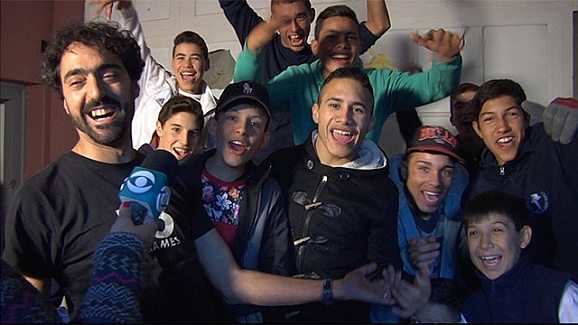
Gen Rosso in Uruguay
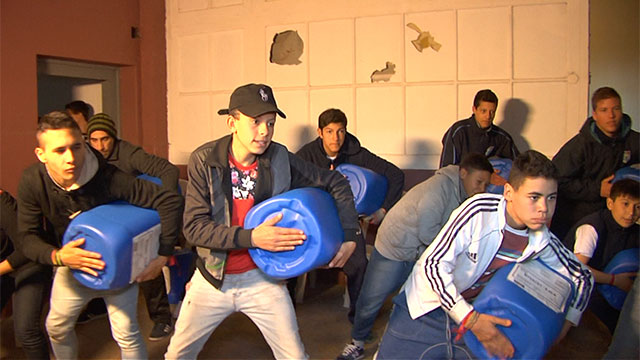 “The most important thing I experienced during these two days with Gen Rosso was to see my dream come true: to feel strong and alive without the need to use violence.” This was the impression shared by Veronica, one of 200 teenagers that took part in a three-day workshop organized by the international band during its tour through Montevideo, Uruguay. The tour also took in Argentina, Bolivia and Paraguay. Fazenda da Esperança was the promoter of this initiative. The Gen Rosso Band members explained: “Strong Without Violence is a project geared towards teenagers and young people, offering formation in a culture of peace, legality, preventing all forms of school violence, revenge, bullying, teenage suicide, teenage issues and dropping out of school. With positive success in several other nations, this time the project gathered 200 young people from at-risk areas in the capital of Uruguay. One of these associations is the Nueva Vida Centre: “I remember when we arrived in this area on the outskirts,” recounts the director, Luis Mayobre. “We were welcomed by stones that were being launched at us by teenagers. Seeing our young people today in full action onstage, together with their peers and launching a message of non-violence has really moved me.” The novelty of the Strong Without Violence Project lies in the fact that the teenagers are actively Involved in a stage performance, with a workshop on dance, music, set design and set-up. They go onstage with the professional artists as main actors in the show.
“The most important thing I experienced during these two days with Gen Rosso was to see my dream come true: to feel strong and alive without the need to use violence.” This was the impression shared by Veronica, one of 200 teenagers that took part in a three-day workshop organized by the international band during its tour through Montevideo, Uruguay. The tour also took in Argentina, Bolivia and Paraguay. Fazenda da Esperança was the promoter of this initiative. The Gen Rosso Band members explained: “Strong Without Violence is a project geared towards teenagers and young people, offering formation in a culture of peace, legality, preventing all forms of school violence, revenge, bullying, teenage suicide, teenage issues and dropping out of school. With positive success in several other nations, this time the project gathered 200 young people from at-risk areas in the capital of Uruguay. One of these associations is the Nueva Vida Centre: “I remember when we arrived in this area on the outskirts,” recounts the director, Luis Mayobre. “We were welcomed by stones that were being launched at us by teenagers. Seeing our young people today in full action onstage, together with their peers and launching a message of non-violence has really moved me.” The novelty of the Strong Without Violence Project lies in the fact that the teenagers are actively Involved in a stage performance, with a workshop on dance, music, set design and set-up. They go onstage with the professional artists as main actors in the show.  “Awesome! It was amazing,” says Inés overcome with emotion. “We did two concerts, May 21 and May 22 with the Clara Jackson Theatre (capacity1,200) completely filled, quite an uncommon thing in our parts; and you couldn’t tell the kids apart from the artists: they were completely integrated.” Laura had watched those children grow up and knew well the great work that is done at the Focolare’s Nueva Vida Centre and at other institutions in the area, to provide a positive future to the young people that is far removed from drugs and other dangers. The setting of this “Streelight” Show is Chicago in the 1960s. It tells the true story of Charles Moatz, a young Black American from the Focolare who was murdered by a gang because of his efforts to build a world that was more united. With his choice of non-violence Charles had sealed his fate. But his radical lifestyle would lead his friends to discover new and unimagined horizons for their own lives. “Phrases like: ‘If you want it, you can do it,’ ‘Love conquers all,’ ‘Love can do all things’ and ‘If you want to win over a city to love, get together with friends who think like you do’ . . .” continued Laura. “It all seemed to fall like drops of due upon the hearts of the people here. And it all came out with such a force that I was trembling. There was such great sympathy between the audience and the people on stage. I had invited a friend who, after a short while was so moved that she was sobbing. I think God has hit hard at our very doorsteps.” Uruguay press, which is strongly secular, mentioned the unusual event in a news article boastfully titled: “200 young Uruguayans prepare at an intensive workshop to go onstage with a musical performed with the international Gen Rosso Music Group” “So happy to see my son on stage!” wrote the mother of one of the boys who had become an instant artist. “I thank the Nueva Vida Centre that has always aimed to give the opportunity to him, to grow as a person.” And Patty: “That ‘If you want it, you can do it’ will remain forever burned into the hearts of each of these teenagers and of all those who were here. Thank you! You’ve charged our batteries and transmitted a very contagious energy.” https://www.youtube.com/watch?v=s5eR25VL53M&feature=youtu.be
“Awesome! It was amazing,” says Inés overcome with emotion. “We did two concerts, May 21 and May 22 with the Clara Jackson Theatre (capacity1,200) completely filled, quite an uncommon thing in our parts; and you couldn’t tell the kids apart from the artists: they were completely integrated.” Laura had watched those children grow up and knew well the great work that is done at the Focolare’s Nueva Vida Centre and at other institutions in the area, to provide a positive future to the young people that is far removed from drugs and other dangers. The setting of this “Streelight” Show is Chicago in the 1960s. It tells the true story of Charles Moatz, a young Black American from the Focolare who was murdered by a gang because of his efforts to build a world that was more united. With his choice of non-violence Charles had sealed his fate. But his radical lifestyle would lead his friends to discover new and unimagined horizons for their own lives. “Phrases like: ‘If you want it, you can do it,’ ‘Love conquers all,’ ‘Love can do all things’ and ‘If you want to win over a city to love, get together with friends who think like you do’ . . .” continued Laura. “It all seemed to fall like drops of due upon the hearts of the people here. And it all came out with such a force that I was trembling. There was such great sympathy between the audience and the people on stage. I had invited a friend who, after a short while was so moved that she was sobbing. I think God has hit hard at our very doorsteps.” Uruguay press, which is strongly secular, mentioned the unusual event in a news article boastfully titled: “200 young Uruguayans prepare at an intensive workshop to go onstage with a musical performed with the international Gen Rosso Music Group” “So happy to see my son on stage!” wrote the mother of one of the boys who had become an instant artist. “I thank the Nueva Vida Centre that has always aimed to give the opportunity to him, to grow as a person.” And Patty: “That ‘If you want it, you can do it’ will remain forever burned into the hearts of each of these teenagers and of all those who were here. Thank you! You’ve charged our batteries and transmitted a very contagious energy.” https://www.youtube.com/watch?v=s5eR25VL53M&feature=youtu.be

What I learned from prison inmates
 “I was employed as a merchandise inspector, that is, to control the quality, quantity and weight of goods, but for corporate reasons I had been fired. I lost everything: my job, family and dignity. After a few months my wife sent me a separation letter, taking with her my five-year old daughter. What’s more, after having followed the advice of my father-in-law, I was sued for swindling, bribery, and criminal conspiracy. Actually, I hadn’t done anything! I felt so much shame also for my loved ones, and infinite anger! I asked myself, where is that God who proclaims to be good and instead allows similar injustice? I was in jail for 15 days, out of which five were in isolation, enclosed in a cell of 2×2 meters, deprived of everything: the freedom to open a window, to see or speak with anyone. Then, when I got out of the isolation cell, I had to face pushers, drug addicts, rapists, and robbers. They were men. In jail I was respected by all because they were certain – even without knowing me – that I was completely innocent and that I shouldn’t have been put in that place. It was their way of restoring the dignity I had been stripped of. I learnt a lot from the convicts. When I was on parole, my relatives convinced me to participate in a Mariapolis, saying that we were going for a four-day holiday. I met a grandma with very white hair who spoke about God who is Love, precisely to me who had strongly doubted that good God. A new and immense world lit up before me, as if I already had met it, but had never experienced it before. I realized that to be able to walk along the path of love, we cannot forego what I then called suffering and which I now identified with the suffering of Jesus on the Cross. When we live in deepest pain, we are more prepared to listen to God who gives us a greater and fuller life. Today I no longer hold any grudge against my ex-wife, father-in-law and daughter who never wanted to see me I was fully absolved of the charges, because three years later they discovered that I had absolutely nothing to do in the lawsuits filed against me. I could not keep to myself what life had taught me and felt the great desire to share it with others, especially the youth. I started with five boys aged 11/12 who knew nothing about faith, or their parents. I started by playing soccer for hours, and then upon accompanying them home, asked them if they wanted to do a simple act of love towards the family. Today these young boys have grown up and some have entered the employment world, but above all, also they wanted to donate in turn to others what they have received, bringing the certainty of God’s love to many. I will never stop thanking God for having given me the chance to love without prejudice, and meeting Him who is Love, and who loves each one of us personally, and that we, his children, are all equal.” (Erasmus – Italy)
“I was employed as a merchandise inspector, that is, to control the quality, quantity and weight of goods, but for corporate reasons I had been fired. I lost everything: my job, family and dignity. After a few months my wife sent me a separation letter, taking with her my five-year old daughter. What’s more, after having followed the advice of my father-in-law, I was sued for swindling, bribery, and criminal conspiracy. Actually, I hadn’t done anything! I felt so much shame also for my loved ones, and infinite anger! I asked myself, where is that God who proclaims to be good and instead allows similar injustice? I was in jail for 15 days, out of which five were in isolation, enclosed in a cell of 2×2 meters, deprived of everything: the freedom to open a window, to see or speak with anyone. Then, when I got out of the isolation cell, I had to face pushers, drug addicts, rapists, and robbers. They were men. In jail I was respected by all because they were certain – even without knowing me – that I was completely innocent and that I shouldn’t have been put in that place. It was their way of restoring the dignity I had been stripped of. I learnt a lot from the convicts. When I was on parole, my relatives convinced me to participate in a Mariapolis, saying that we were going for a four-day holiday. I met a grandma with very white hair who spoke about God who is Love, precisely to me who had strongly doubted that good God. A new and immense world lit up before me, as if I already had met it, but had never experienced it before. I realized that to be able to walk along the path of love, we cannot forego what I then called suffering and which I now identified with the suffering of Jesus on the Cross. When we live in deepest pain, we are more prepared to listen to God who gives us a greater and fuller life. Today I no longer hold any grudge against my ex-wife, father-in-law and daughter who never wanted to see me I was fully absolved of the charges, because three years later they discovered that I had absolutely nothing to do in the lawsuits filed against me. I could not keep to myself what life had taught me and felt the great desire to share it with others, especially the youth. I started with five boys aged 11/12 who knew nothing about faith, or their parents. I started by playing soccer for hours, and then upon accompanying them home, asked them if they wanted to do a simple act of love towards the family. Today these young boys have grown up and some have entered the employment world, but above all, also they wanted to donate in turn to others what they have received, bringing the certainty of God’s love to many. I will never stop thanking God for having given me the chance to love without prejudice, and meeting Him who is Love, and who loves each one of us personally, and that we, his children, are all equal.” (Erasmus – Italy)
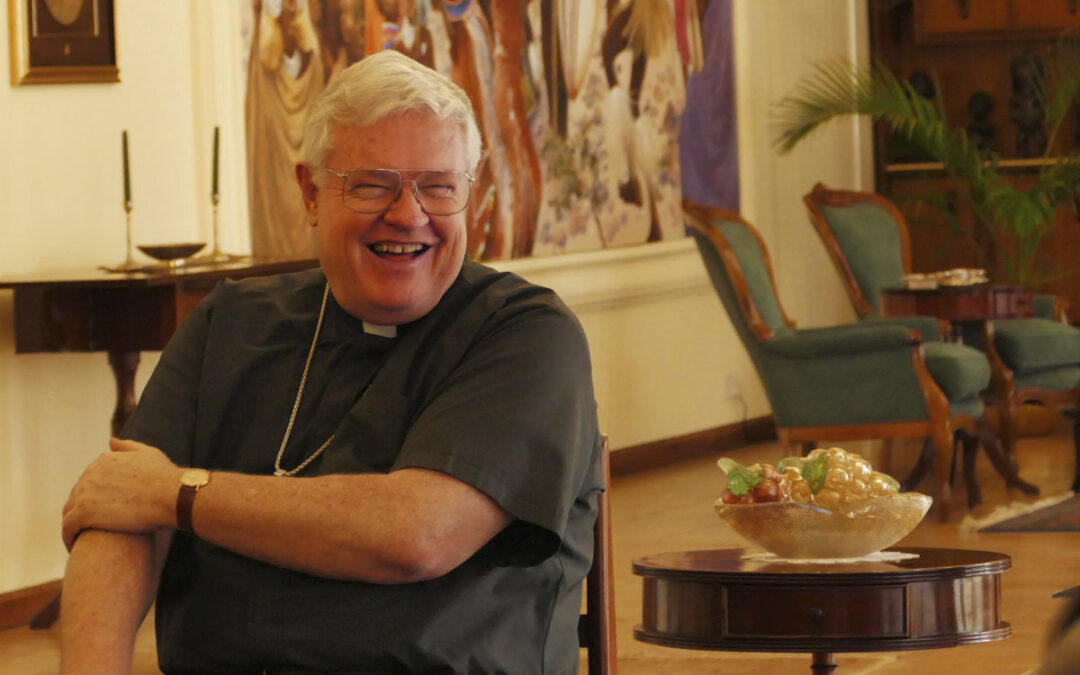
In South Sudan, shared hopes and concerns
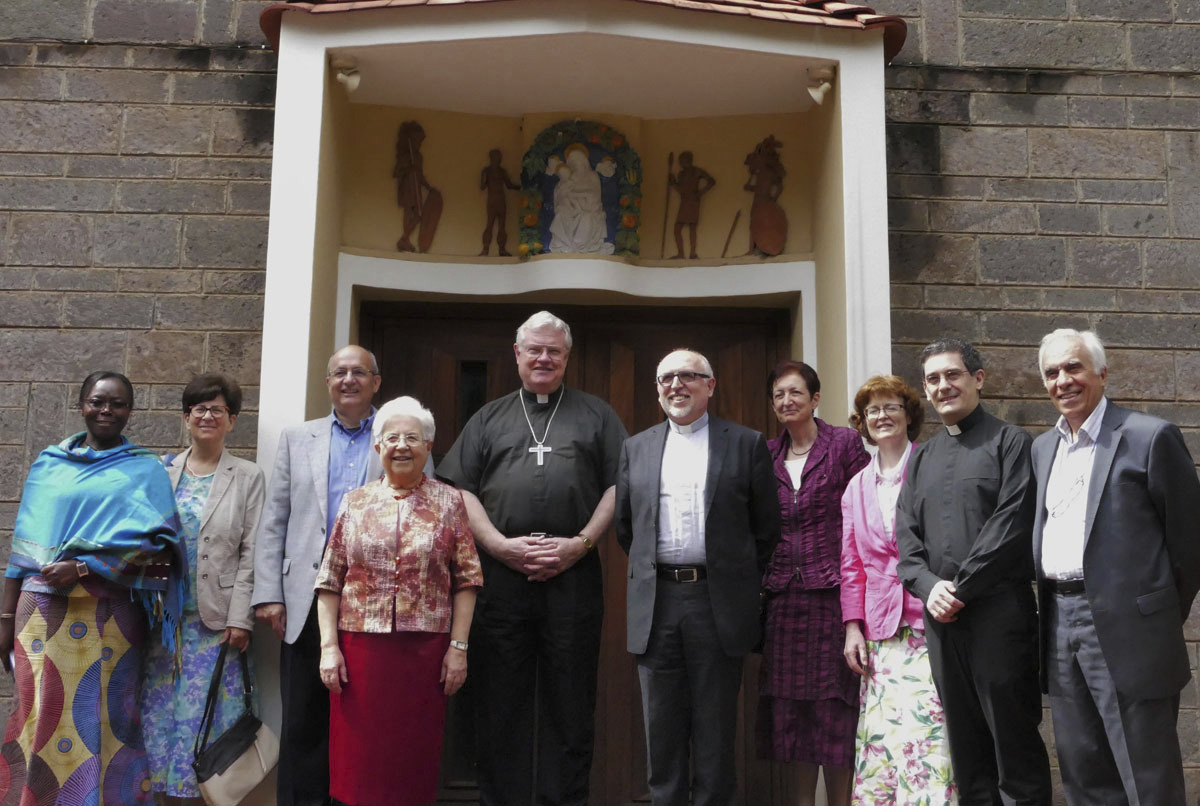 Apostolic Nuncio in Kenya since January 2013, Archbishop Balvo is also the first apostolic nuncio of South Sudan, an independent state since 2011 that has been tried by war, poverty and migrations. Maria Voce and co-president Jesús Morán had met the archbishop at the Nunciature in Nairobi on May 20, 2016 during their visit to Kenya on May 14 – June 1. In a cordial and family atmosphere they shared news and also hopes and concerns over the challenges in the region, especially in South Sudan. They talked about Chiara Lubich who Archbishop Balvo had met during Chiara’s trip to the Middle East in 1999 when the archbishop was serving in Jordan. They also shared about the School of Inculturation that was being held at Mariapolis Piero during those days. He told about his adventure welcoming the Pope to Kenya, and then his visit to the Central African Republic where Christians and non-Christians said “they were struck that the Pope didn’t run away from their problems, and that despite security concerns he spent a night in their country. The archbishop was also updated on news regarding the Focolare, such as the recent surprise visit of Pope Francis to the Mariapolis in the city of Rome. “Pope Francis is the Pope of surprises,” the archbishop responded. But the focus soon shifted to the drama that is taking place in South Sudan. In speaking about the crisis in that region the Nuncio underscored the many challenges: poverty and illiteracy that are worsened because of the lack of peace. In 2007, through AMU, the Focolare had launched a project in the desert around Khartum for the construction of a school for refugees from South Sudan who were living in a camp at the parish of Omdurman. The project, which lasted for several years, was inserted into a diocesan project called “Saving those who can be saved”. The school was built, but afterwards many families returned to South Sudan before it became an independent state.
Apostolic Nuncio in Kenya since January 2013, Archbishop Balvo is also the first apostolic nuncio of South Sudan, an independent state since 2011 that has been tried by war, poverty and migrations. Maria Voce and co-president Jesús Morán had met the archbishop at the Nunciature in Nairobi on May 20, 2016 during their visit to Kenya on May 14 – June 1. In a cordial and family atmosphere they shared news and also hopes and concerns over the challenges in the region, especially in South Sudan. They talked about Chiara Lubich who Archbishop Balvo had met during Chiara’s trip to the Middle East in 1999 when the archbishop was serving in Jordan. They also shared about the School of Inculturation that was being held at Mariapolis Piero during those days. He told about his adventure welcoming the Pope to Kenya, and then his visit to the Central African Republic where Christians and non-Christians said “they were struck that the Pope didn’t run away from their problems, and that despite security concerns he spent a night in their country. The archbishop was also updated on news regarding the Focolare, such as the recent surprise visit of Pope Francis to the Mariapolis in the city of Rome. “Pope Francis is the Pope of surprises,” the archbishop responded. But the focus soon shifted to the drama that is taking place in South Sudan. In speaking about the crisis in that region the Nuncio underscored the many challenges: poverty and illiteracy that are worsened because of the lack of peace. In 2007, through AMU, the Focolare had launched a project in the desert around Khartum for the construction of a school for refugees from South Sudan who were living in a camp at the parish of Omdurman. The project, which lasted for several years, was inserted into a diocesan project called “Saving those who can be saved”. The school was built, but afterwards many families returned to South Sudan before it became an independent state. 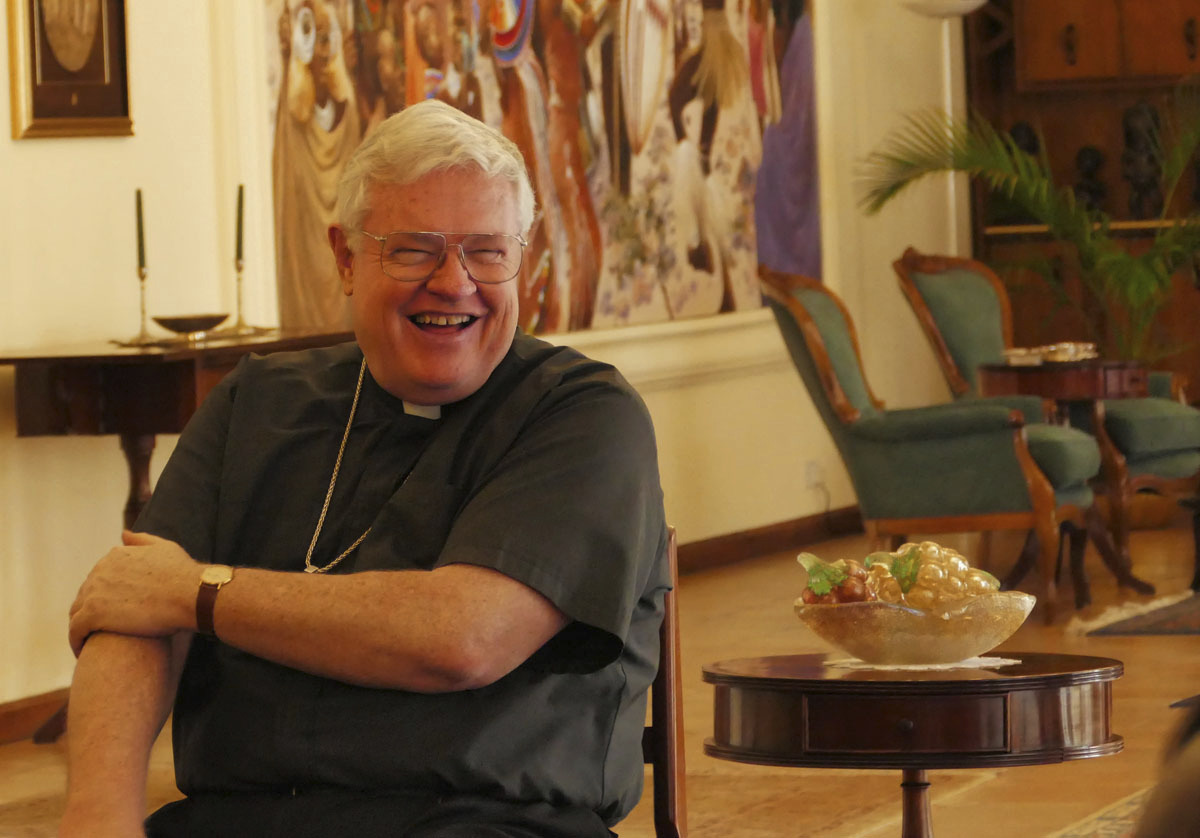 “In a region so rich with resources, it’s going to be difficult to develop them until a stable peace is established,” Archbishop Balvo noted. “It’s really difficult to promote the society with generations of people who have known nothing but violence.” From there he moved on to the history of the country in which he travels so much to demonstrate his love for the people of South Sudan. The South separated from the North on July 9, 2011 following a referendum won by a Sudanese majority in January of the same year. That referendum, which was one of the key points of the peace accord that in 2005, put an end to 21 years of civil war between the government of Khartoum and the group fighting for the independence of South Sudan. The separation of South Sudan remains charged with tension and critical points. Among them are the dividing line between North and South and the status of the region of Abyei which is rich in oil and disputed by both countries. Within South Sudan there are armed groups that threaten the peace, and ethnic conflicts over land, water and livestock disputes are the order of the day. In December 2013, a conflict broke out between government forces and forces loyal to the former Vice President Rieck Machar. In January 2014, the first ceasefire was signed and, on April 26, 2016, Riek Machar returned to the capital and was sworn in as vice president. Maria Voce expressed her hope that this step would return South Sudan to the path of unity and prosperity.
“In a region so rich with resources, it’s going to be difficult to develop them until a stable peace is established,” Archbishop Balvo noted. “It’s really difficult to promote the society with generations of people who have known nothing but violence.” From there he moved on to the history of the country in which he travels so much to demonstrate his love for the people of South Sudan. The South separated from the North on July 9, 2011 following a referendum won by a Sudanese majority in January of the same year. That referendum, which was one of the key points of the peace accord that in 2005, put an end to 21 years of civil war between the government of Khartoum and the group fighting for the independence of South Sudan. The separation of South Sudan remains charged with tension and critical points. Among them are the dividing line between North and South and the status of the region of Abyei which is rich in oil and disputed by both countries. Within South Sudan there are armed groups that threaten the peace, and ethnic conflicts over land, water and livestock disputes are the order of the day. In December 2013, a conflict broke out between government forces and forces loyal to the former Vice President Rieck Machar. In January 2014, the first ceasefire was signed and, on April 26, 2016, Riek Machar returned to the capital and was sworn in as vice president. Maria Voce expressed her hope that this step would return South Sudan to the path of unity and prosperity.
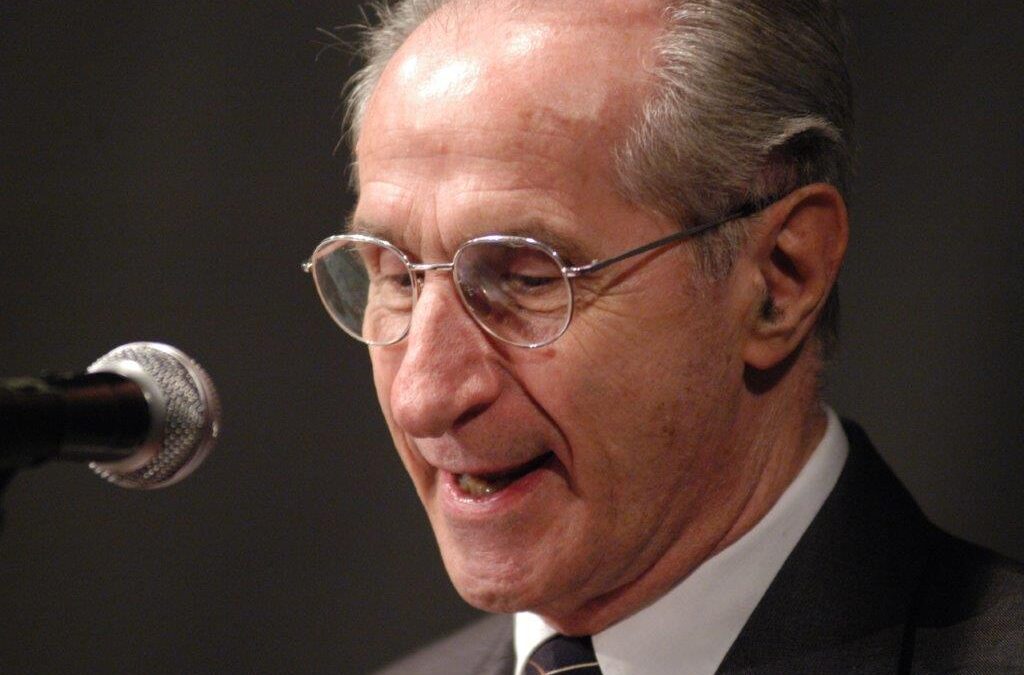
Giorgio Marchetti has left us
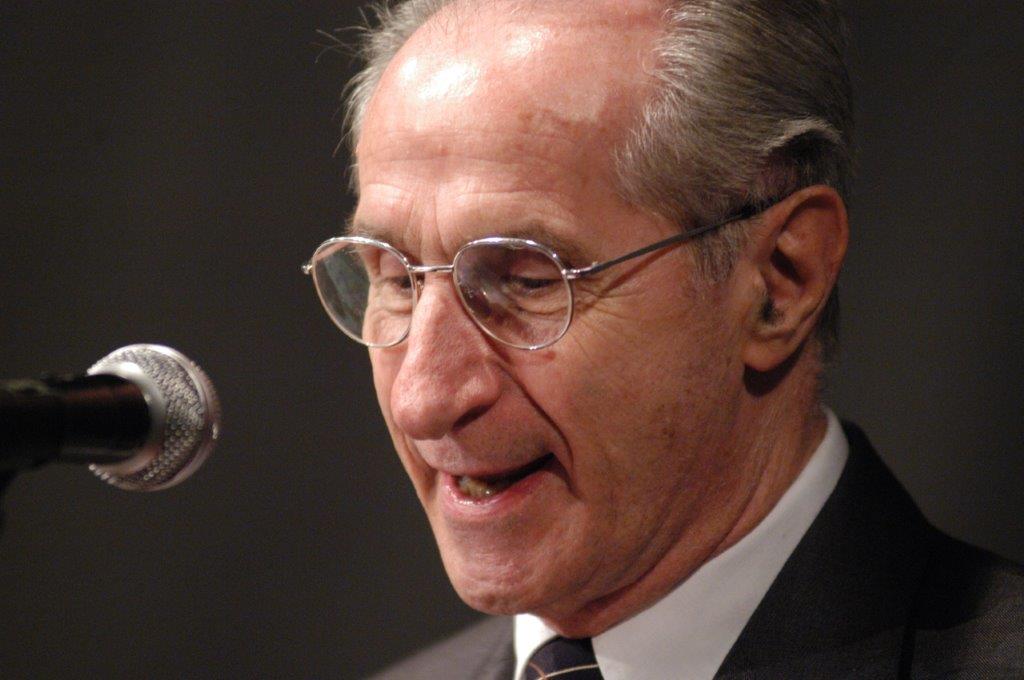 “Here in Africa we got the news at one o’clock this morning, May 20th, the feast day of Corpus Domini. He had more than once expressed his desire to join Chiara Lubich in Heaven. We rejoice with him and pray for him.” Maria Voce wrote these words to all the members of the Focolare Movement, while on a visit to Kenya where she has been since May 14th. Giorgio Fede Marchetti was born in Padua, Italy, on October 16, 1929 where he was amongst the first people to become involved in the adventure of unity, as Chiara Lubich called it. But he also continued to accompany the growth and development of the Focolare around the world. The director of Città Nuova, Michele Zanzucchi, writes: “Many of us will remember his staunch loyalty to Chiara Lubich as he followed the path traced out by the charism of unity during the first months of the Focolare town of Loppiano in Tuscany, Italy, surrounded by mud but also genuine enthusiasm. He’ll be remembered in Brazil where he came face to face with the hard reality of the shanty towns. We’ll remember how he supported the Movement, always on the frontlines, always looking forward.” Ángel Bartol, who was with him in his last moments: “Fede continued to give of himself, body and soul, to the very end. He was a doctor, psychologist and theologian who had trained and accompanied hundreds of young men on the path of the focolarini. Intelligence and generosity were his main traits. Much more could be written about him, and much more will be in the coming days. For now we simply say: Thank you, Fede, for your life that was centered on the unity of the human family! A funeral will be held at the Mariapolis Centre of Castelgandolfo on Tuesday, June 1st at 11:00 am.
“Here in Africa we got the news at one o’clock this morning, May 20th, the feast day of Corpus Domini. He had more than once expressed his desire to join Chiara Lubich in Heaven. We rejoice with him and pray for him.” Maria Voce wrote these words to all the members of the Focolare Movement, while on a visit to Kenya where she has been since May 14th. Giorgio Fede Marchetti was born in Padua, Italy, on October 16, 1929 where he was amongst the first people to become involved in the adventure of unity, as Chiara Lubich called it. But he also continued to accompany the growth and development of the Focolare around the world. The director of Città Nuova, Michele Zanzucchi, writes: “Many of us will remember his staunch loyalty to Chiara Lubich as he followed the path traced out by the charism of unity during the first months of the Focolare town of Loppiano in Tuscany, Italy, surrounded by mud but also genuine enthusiasm. He’ll be remembered in Brazil where he came face to face with the hard reality of the shanty towns. We’ll remember how he supported the Movement, always on the frontlines, always looking forward.” Ángel Bartol, who was with him in his last moments: “Fede continued to give of himself, body and soul, to the very end. He was a doctor, psychologist and theologian who had trained and accompanied hundreds of young men on the path of the focolarini. Intelligence and generosity were his main traits. Much more could be written about him, and much more will be in the coming days. For now we simply say: Thank you, Fede, for your life that was centered on the unity of the human family! A funeral will be held at the Mariapolis Centre of Castelgandolfo on Tuesday, June 1st at 11:00 am.
